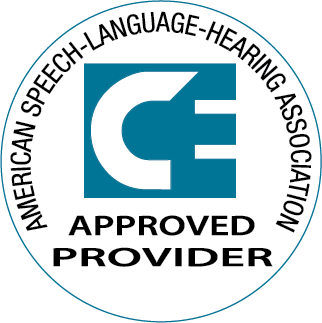For Professionals
This website is an ever-changing site dedicated to providing professionals and consumers with the most up-to-date and helpful information regarding the speech, language and hearing professions.
We will include information about New Hampshire Licensing, Job Openings and NHSLHA Membership information. We will also keep you informed about school issues, educational programs, professional development, and state and national resources.

License & Certification Renewal Reminder!
Reminder: State SLP licenses and SLA certifications are due for renewal by December 1, 2019. ONE month left to complete your continuing education hours for your NH credential!
Medicaid Emergency Rule Opportunity
The Department of Health and Human Services would like to invite you to the first stakeholder engagement meeting scheduled for Thursday, October 17, 2019, 2:30-4:30 at DHHS, 29 Hazen Drive in Concord, NH. This is the first of several meetings related to Medicaid services provided in the school setting. For this initial meeting, the Department will provide an overview of the issues as well as its multi-pronged approach to addressing those issues. The primary goal of these meetings is to elicit stakeholder feedback as the Department goes through the regular rule-making, as well as to ensure an open line of communication for questions, concerns, and potential opportunities related to Medicaid to Schools. Information gathered through this process will also inform future guidance, technical assistance, and training related to compliance under the Medicaid program.
Please RSVP by emailing Laura Rebolledo at Laura.Rebolledo@dhhs.nh.gov. Please specify if you plan to attend in person, or if you would like to participate by teleconference. We will send in call-in information prior to the meeting.
Any materials provided in this, as well as future stakeholder meetings, will be available at https://www.dhhs.nh.gov/ombp/medicaid/mts/index.htm.
Medicaid-To-Schools Emergency Ruling:
| The complete emergency rule document is linked below. Here is a summary of the change that directly impacts S/L providers and school district reimbursements effective August 29th, 2019. ***Restrictions on the process for ordering, recommending or referring services by requiring that only a Physician, Physician Assistant (PA) or Advanced Practice Registered Nurse (APRN) may order services. Throughout the history of Medicaid to Schools, a physician OR a licensed practitioner of the healing arts has been allowed to order, recommend or refer services, when ordered by an IEP team. Never has the program restricted the licensed practitioner of the healing arts to only a PA or APRN. ER 2019 He-M 1301 Notice and Rule Text |
Governmental Affairs Report Summary September 9, 2019
Frank Edelblut, NH Commissioner of Education and Stephen Appleby, Director of the Bureau of Credentialing attended the SLP Board of Governors meeting to discuss the Department of Education’s assertion that SLPs working in school districts need to have the SLS credential as well.
This issue has arisen recently because Steve Appleby is new to the Director of the Bureau of Credentialing position. In his review of the educational endorsements, he realized that there were Licensed Speech-Language Pathologists who were working in the schools, but were not certified as Speech-Language Specialists.
When the SLS credential was established, the intent of the law was to exempt SLPs from certification as SLSs. Unfortunately, the wording of the laws and rules is not entirely clear.
The laws and rules say that if an individual is licensed by the state of NH as an SLP, he/she has met the competencies that fulfill the requirements of the SLS Credential. This does not mean that he or she holds that credential, just that there are no additional requirements to obtain the credential.
Part of the confusion is due to the overlapping job activities that both an SLS and an SLP could perform in the school setting. If an SLP is performing the job duties of an SLS, then the Department of Ed wants that individual to have the SLS credential. However, there are significant differences in what an SLS is allowed to do and what an SLP is allowed to do. An SLP can sign for Medicaid to Schools reimbursement, and SLS cannot. An SLP can supervise Certified Speech-Language Assistants, an SLS cannot.
An additional factor to the general confusion is that whether an individual is called an SLS or an SLP depends on the local school district’s choice of terminology. If the local school district advertises for and hires someone as a Speech-Language Pathologist, then the SLS endorsement is not required. If someone is hired as a Speech-Language Specialist and signs a contract to that effect, then the SLS credential is required. Also, if the job description uses the term “Speech-Language Specialist”, then anyone filling that job must have the SLS credential. Licensed Speech-Language Pathologists who do not already hold the SLS credential need to be aware of the terminology in anything they sign.
Another issue that was not addressed in this meeting is the prohibition in RSA 541-A:22, III(f) against an agency adopting rules under another agency’s authority. The Speech-Language Pathology Board of Governors has the authority to regulate speech-language pathologists and by adding the requirement of another credential, the Department of Education has infringed on the authority of the SLP Board of Governors.
Mr. Edelblut and Mr. Appleby mentioned the recently established endorsement for school nurses as analogous to the SLS/SLP issue. These situations are not comparable. The field of nursing separates their credentials into many more categories than does the field of Speech-Language Pathology. There are licenses for APRNs, RNs, LPNs, and Medication Nursing Assistants. In addition to those different credentials, there are three levels of School Nurse certifications issued by the NH Dept of Education.
In the field of Speech-Language Pathology, there are only licensed Speech-Language Pathologists who must have a master’s degree and Certified Speech-Language Assistants who must have at least an associate’s degree. These credentials are issued by the NH Speech-Language Pathology Board of Governors.
The requirements for an SLP license and the SLS endorsement differ in two ways: a license requires the Speech-Language Pathology Praxis Test and the master’s degree must be in Speech-Language Pathology, Communications Sciences and Disorders or Speech and Hearing Sciences. The SLS credential does not require a test and allows the individual to have a master’s in “Speech-Language Pathology or its equivalent” (Title XV, Chapter 189, Section 189:14-e I(a).) What would be an equivalent degree is not indicated.
Although there are both Laws (Title XV, Chapter 189, Section 189:14-e) and Rules (Ed 507.23 (d)) that say that a licensed SLP has met the qualifications for the SLS, the Department of Education maintains that this does not mean that the licensed SLP is exempt from the Department’s requirement that individuals providing services in schools hold the Department’s relevant credential. Obtaining the credential involves an application and the payment of a fee. These laws also restrict the Speech-Language Specialist to practicing only in schools. Whether this restriction would apply to an individual holding both the SLP license and the SLS endorsement is not clear and was not addressed in this meeting.
Both Mr. Edelblut and Mr. Appleby were in favor of submitting changes to the laws and rules to make it clear that a licensed SLP is exempt from needing the SLS credential to work in schools.
The SLP Board of Governors voted to have a draft of the necessary statutory changes written to reflect this exemption.
Respectfully submitted,
Victoria Chesterley, MS, CCC-SLP
VP of Governmental Affairs, NHSLHA
